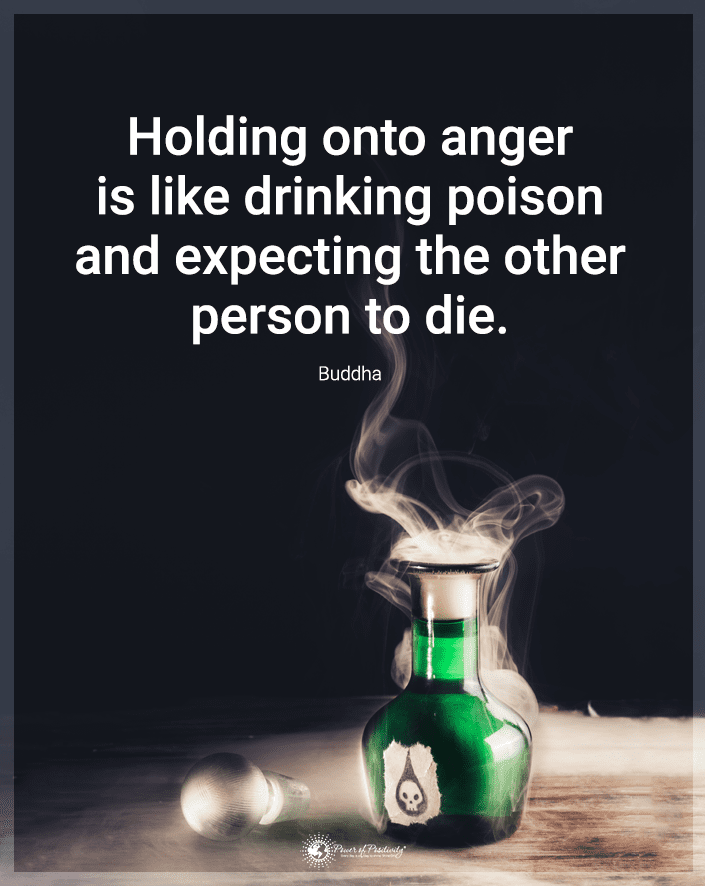Dealing with chronic anger can be challenging for you and those in your inner circle. For some people, anger issues are like a subtle, burning furnace in their minds. For many others, it’s an explosion of rants, rage, verbal abuse, and potential violence.
Did you know that anger is one of the easiest emotions to show? It often masks fear, sadness, and deep depression. Rather than admit to these emotions, some people would rather lose their cool.
However, there’s such a thing as righteous indignation. It’s understandable to be angry about injustice and other senseless cruelties. Anger often inspires people to make necessary changes in their lives or to help others.
Ephesians 4:26 states that it’s okay to be angry, but you can’t let that anger take you to the point of sinning. Many situations in this world should make good folks indignant. If you don’t handle this fiery emotion properly, it can quickly turn on you and destroy everything and everyone you love.
Ten Symptoms of Chronic Anger You Shouldn’t Ignore
How do you know if you’re only venting or have constant anger issues? Denying that you have a problem only makes it worse. Here are eight symptoms of chronic anger that you should never ignore.

1. Chronic Anger that Can Last for Weeks or Months
Even the best-natured folks can get a bit miffed on occasion. You probably have nothing to worry about, even if you express mild anger daily. However, chronic anger can be a disturbing sign of toxicity.
This type of anger is profoundly different than getting aggravated and being short with somebody. It’s often an explosive rage that can continue for weeks or even months. After a while, you may sink into a state of denial and feel like your fiery wrath is justified.
2. Increased Temper Flareups Throughout the Day
Some people are more prone to losing their temper than others. Have you often claimed that you inherited your hot-headedness from your family? An article published by The University of Chicago suggests that severe rage is often familial and correlates to brain activity.
It’s understandable when someone pushes you too far, and you have a burst of rage. A toxic person with chronic anger issues often stays at this explosive level. Dealing with their toxicity is as volatile as walking along a path of landmines.
3. Chronic Anger May Include Acts of Aggression or Physical Violence
You can probably get hot under the collar and still not hurt anyone. However, a toxic person with chronic anger is often highly aggressive. The smallest slight can turn them into an exploding bomb.
Chronic rage, toxicity, and aggression are a sure toxic recipe for physical violence. According to a report published by Statistica, 1.31 million cases of violent crime were reported in America in 2021. Of these cases, at least 921,505 included aggravated assault.
4. Rage Can Lead to Issues with Law Enforcement and Courts
Most people don’t allow their temper flares to escalate into acts of violence. However, chronic anger often includes abuse and violence that results in legal consequences. Law enforcement is often called in for cases of violence in the home or public.
According to a report by National Statistics, at least one in every three American women is a victim of physical violence. More than 20,000 calls are received by domestic violence hotlines nationwide daily. Domestic violence also correlates with depression and suicidal behavior.
Chronic anger that leads to violence can get you into significant trouble. You can be arrested, fined, and even spend time in jail. If this issue isn’t addressed, you could quickly become a toxic person that ends up in prison.
5. Road Rage that Only Intensifies with Time
Let’s face it: Nobody likes to be cut off in traffic or subjected to another breach of driving etiquette. While some drivers are just distracted, many others can be intolerably rude. You’re not the only one who would react with a few choice words or gestures.
If you lose your temper and go into road rage, it’s a different story. An article published by AAA Foundation for Auto Safety states that at least 79 percent of Americans have engaged in road rage. This action includes incessant honking, gesturing, yelling, and dangerous vehicle maneuvers.
These incidents only increase and intensify for the toxic person with chronic anger. Soon, they can’t get behind the wheel without losing their cool and lashing out at other motorists. Aggressive driving can cause accidents and even fatalities.
6. Chronic Anger Might Lead to a Weakened Immune System
How do you feel after you’ve lost your cool with someone? The rush of adrenalin and other stress hormones may keep you on a high for a while. Inevitably, you’ll probably feel drained and sick with the emotional toxicity.
These constant angry outbursts keep your body in survival mode. The excess flux of stress hormones can eventually lead to systemic damage and a weakened immune system. Lower immunity could increase your chances of developing certain diseases and premature death.
7. Disconnection and Troubled Relationships
Spending time with a toxic person who’s always losing their temper is difficult. You feel like you must walk on eggshells to avoid invoking their wrath. Consequently, you avoid this individual as much as possible.
If you have symptoms of chronic anger, it causes toxicity and disconnects with others. Family, friends, and coworkers may become suspicious of your frequent outbursts. They’re tired of being embarrassed by how you explode at staff in stores and restaurants.
Your kids may not mention any problems at school to prevent you from storming into the principal’s office. If you’re constantly directing your fury at your partner, it may lead to a broken relationship. As people in your circle begin to keep their distance, the isolation may make your anger issues worse.
8. You’re More Likely to Hold a Grudge
When someone hurts or betrays you, it’s only natural to be sad and angry. However, it can quickly turn into bitterness, leading to a downward vortex of depression and chronic anger. Holding a grudge builds toxicity and prevents you from healing and getting on with your life.
If your anger issues are frequent, you’re more apt to be bitter and unforgiving. Sometimes, you may be furious with another person for years and forget the reason you became mad in the first place. Sadly, you can lose yourself in the darkness of your smoldering wrath, vengefulness, and despair.
Four Easy Ways to Find Peace if You Struggle With Chronic Anger
The good news is that you needn’t allow toxicity and anger issues to destroy your life. There are things you can do to settle that deep-seated fury. Here are four suggestions to overcome your constant rage and bring peace to your body, mind, and spirit.
1. Recognize the Triggers of Your Chronic Anger
Everyone has words or actions that can trigger anger or other emotions. You’ve probably stated that people like to “press your buttons.” You can feel your blood boil when you’re in the situation.
Learn to recognize these triggers and how you can best avoid them. You may need to make some lifestyle changes or difficult decisions. Avoiding emotional triggers can help minimize your chances of outbursts and becoming a toxic person.
2. Find an Outlet to Avoid Rage
Have you ever been so furious that you wanted to hit someone? Such potent anger can lead to violence. Finding an outlet for your rage can relieve your mind and body from stress and temper.
Exercise is an excellent outlet for your wrath. Jumping rope or taking your anger out on a punching bag can be beneficial. Not only will you release the negative energy, but you’ll get your body in better shape.
3. Try a Mindful Practice
The next time your temper flares, consider doing something to calm yourself. Find a quiet place for meditation and deep breathing exercises. Mindful movements like yoga or tai chi can also soothe your emotional fire.
Another tool to consider is writing in a journal. What situations can you be in that made you want to explode? Instead of spewing hurtful words at someone, write them in your journal. As you reflect on past entries, you may notice patterns in your life that need improvement.
4. Talk to Somebody About the Chronic Anger
It’s not a sign of weakness to ask for help when you’re struggling with a problem. Consider meaningful conversations with your partner and family. Having a different perspective may open your mind to better coping skills.
You can also talk to a trusted friend, spiritual leader, or mental health professional. The sooner you recognize your problem and get help, the better. Often, sharing what’s on your mind can ease and lessen your chances of being a toxic person.
Final Thoughts on Chronic Anger
Anger is a natural human emotion that can serve you well if used properly. However, a chronic case can devastate your well-being and relationships. Fortunately, you can find better ways to cope with this negative emotion and bring the inner peace you need.




















